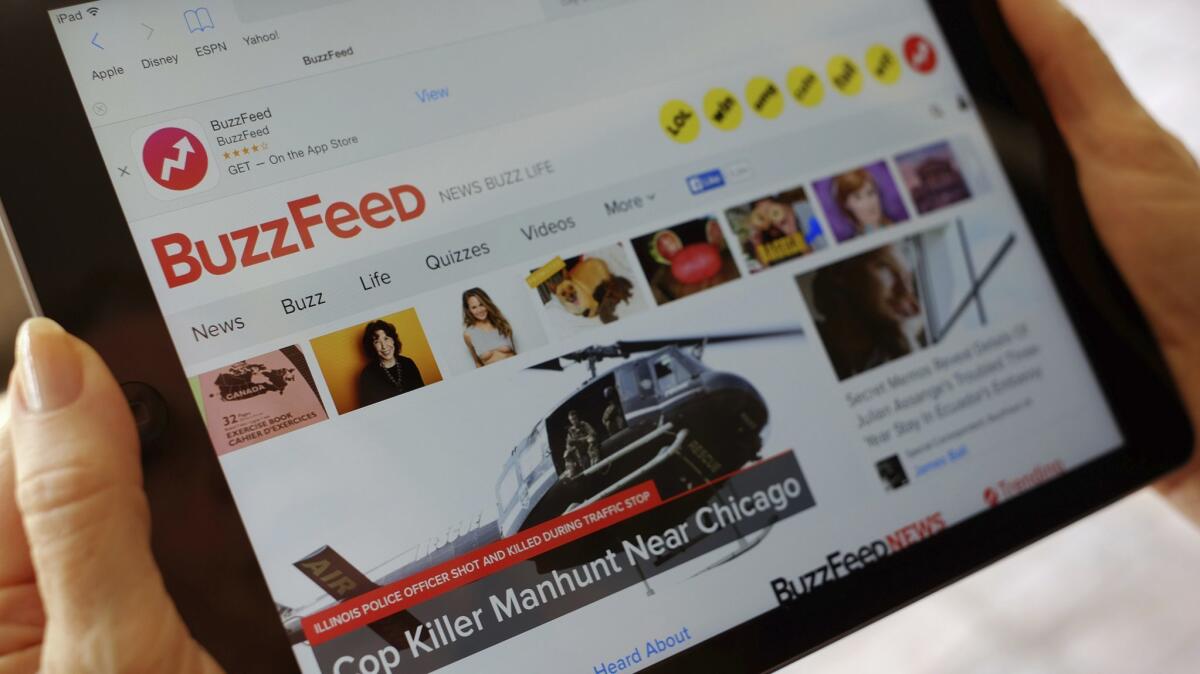BuzzFeed journalists decide to unionize

- Share via
BuzzFeed Inc.’s journalists, reeling from a round of layoffs, have decided to unionize, organizers announced Tuesday, demanding that their employer recognize the union immediately.
About 90% of workers supported the decision to join NewsGuild, a labor union that’s part of the Communications Workers of America, BuzzFeed News reporter Salvador Hernandez said on Twitter.
BuzzFeed News Editor-in-Chief Ben Smith said in an emailed statement: “We look forward to meeting with the organizers to discuss a way toward voluntarily recognizing their union.”
BuzzFeed’s move last month to eliminate 15% of its workforce gutted several parts of its newsroom, including the national desk and the healthcare news desk. After the layoffs, employees took to Twitter and Medium to criticize the company’s failure to pay all dismissed workers for accrued time off. Eventually BuzzFeed management relented and agreed to pay for the accrued time off.
The cutbacks were part of a wave of media layoffs along with Verizon Communications Inc.’s HuffPost division and Gannett Inc.’s newspapers, as publishers continue to struggle to find profitable business models.
The tumult has led journalists at several outlets to opt for collective bargaining. Employees at Mashable, Vice Media and Gizmodo Media Group have all voted to join unions in the last couple of years, and although that hasn’t prevented layoffs, it has in some cases cushioned the blow. Unionized journalists at HuffPost, for example, were reportedly entitled to at least two months of severance pay because of their collective bargaining agreement.
The Los Angeles Times’ journalists joined NewsGuild in 2018.
As other digital newsrooms voted to unionize, BuzzFeed founder Jonah Peretti told employees that they didn’t need a union or the often adversarial relationship with management that follows. “I don’t think a union is right for BuzzFeed,” he told employees in 2015.
Pressure has been mounting on BuzzFeed to generate more revenue after missing its sales goal in 2017. Although the company had more than $300 million in revenue last year and claims an audience of more than 650 million people, it was still unprofitable, according to two people familiar with the company’s finances who were not authorized to comment.
Times staff writers Lauren Raab and Wendy Lee contributed to this report.
More to Read
Inside the business of entertainment
The Wide Shot brings you news, analysis and insights on everything from streaming wars to production — and what it all means for the future.
You may occasionally receive promotional content from the Los Angeles Times.










